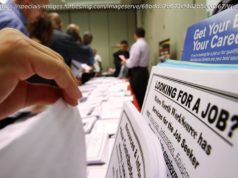Calling sexual misconduct allegations “lynching” is not only inaccurate, it dishonors a very real history.
In recent days, defenders of both R. Kelly and Bill Cosby have declared that public backlash against these two men amounts to an “attempted lynching.”
That’s problematic for a number of reasons.
Here’s the background: R. Kelly, a singer and songwriter, has been accused of sexual misconduct with minors at various times over the past two decades. Last year, black women started a Twitter campaign called #MuteRKelly, in an effort to get Kelly’s concerts canceled, and his music removed from radio airwaves. Kelly has faced increasing scrutiny in recent months, as the #MeToo movement continues to call attention to sexual misconduct.
On Monday, a group of women of color affiliated with Time’s Up, the Hollywood-led movement to fight sexual harassment and misconduct, issued a statement saying that they supported the campaign .
A representative for Kelly responded by calling their effort an “attempted lynching.”
“Since America was born, black men and women have been lynched for having sex or for being accused of it,” the representative said in a statement to BuzzFeed . “We will vigorously resist this attempted public lynching of a black man who has made extraordinary contributions to our culture.”
To call the campaign against Kelly lynching was a startling claim, but it’s not the first time black male celebrities have invoked it recently.
During his April trial over the 2004 sexual assault of Andrea Constand, comedian Bill Cosby also raised the specter of a “ public lynching ” in an effort to paint his accusers, the majority of whom are white women, as liars out to destroy him.
“Since when are all people honest? Since when are all women honest?” Cosby’s spokesperson Ebonee Benson said during an April 27 appearance on Good Morning America. She added that the testimony of five other women who have accused Cosby of assault introduced a “huge amount of prejudice and bias” into his trial. Another Cosby spokesperson invoked Emmett Till, a black teenager brutally murdered after a white woman accused him of whistling and grabbing her. (In 2017, Till’s accuser admitted that the claims were false.)
And in a much older, yet relevant, example, Supreme Court Justice Clarence Thomas argued that sexual harassment allegations against him were nothing more than a “ high-tech lynching ” that sought to derail his nomination in the early 1990s.
In speaking of lynchings, these men are seeking to connect themselves to a very real legacy of racial terrorism in America. For decades, lynchings were used in the hopes of frightening black people into submission. And it’s certainly true that for many black men, an allegation of sexual assault or harassment was enough to cost a man his life.
But that’s not what’s happening here. And by calling public attacks on them “lynchings,” defenders of Cosby and Kelly are not only seeking to deflect serious allegations of misconduct (many of which are being raised by black women), they are obscuring the horrific reality of what black Americans have actually faced over the past hundred years.
To invoke lynchings is to invoke a long history of racist acts against black Americans, a history that saw black bodies burned, shot, and hung with impunity. Lynchings often became highly public affairs, with crowds of people witnessing the brutal torture and murder. In some instances, pieces of a person’s mutilated body were handed out as souvenirs.
Victims included people like Mary Turner, a pregnant Georgia woman who was hung from a tree and set on fire by a mob in 1918 after she protested the lynching of her husband. Turner was still alive when her unborn child was cut out of her and trampled.
“Enslaved people were promised freedom, and what they got was terrorism,” Bryan Stevenson, founder and executive director of the Equal Justice Initiative, group that provides legal services to people who have been wrongfully convicted or face other issues in the criminal justice system, told me recently .
His group has researched lynchings for years, publishing a report in 2015 that uncovered more than 4,000 lynchings in America between 1877 and 1950, far more than had been previously documented. The group continues to find lynchings in its research.
On April 26, the EJI opened the Legacy Museum and the National Memorial for Peace and Justice, which both put an especially strong focus on honoring lynching victims, recognizing a lengthy campaign of racial terrorism and trauma. A particularly striking section of the Memorial for Peace and Justice contains some 800 suspended steel monuments engraved with the dates of various lynchings and the names of victims.
Lynching was an effort to silence and maintain control by any means necessary. Its legacy continues to affect our present, manifesting in the criminal justice system and mass incarceration, systems that have disproportionately affected black people. In invoking its history, Cosby and Kelly seek to capitalize on the fear and anger black people have felt about these systems, and are also attempting to paper over the allegations that chase them by framing themselves as the real victims.
To call the allegations against either of them lynching is not only inaccurate, but dishonors a very real history.
“The reality of lynching in America is so, so painful and so real. This is not a public lynching,” Me Too movement founder Tarana Burke recently told NPR. “This is a call for public accountability.”






